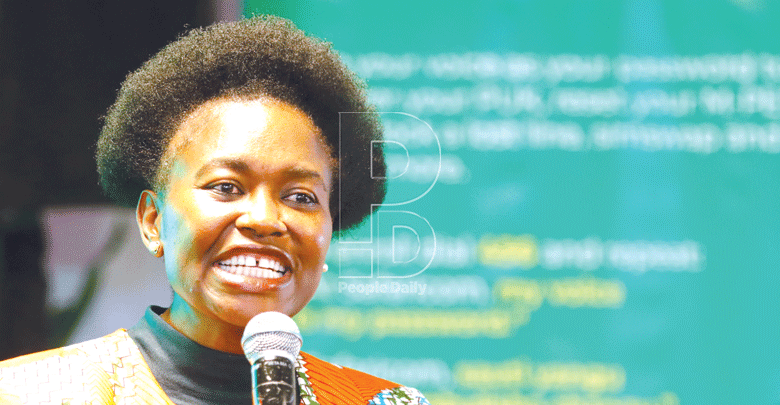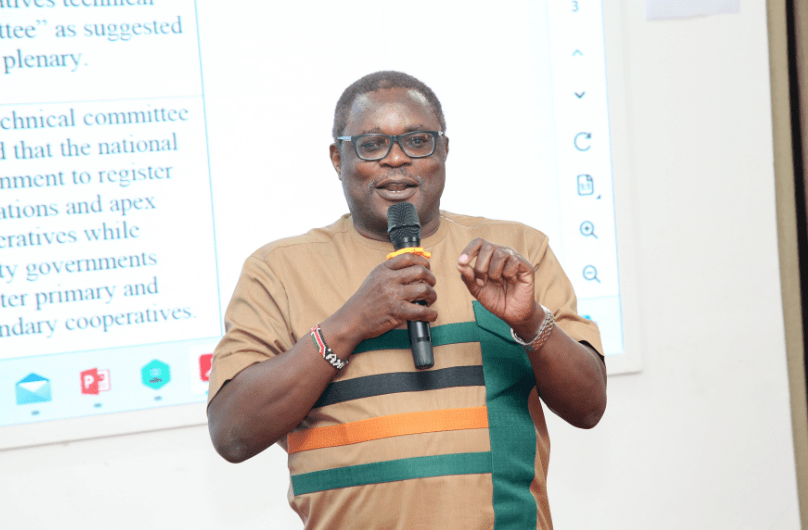What handling Covid call centre involved

@adalla_allan
For Janet Atika, the onset of Covid-19 meant a whole restructuring of her working system.
As the director of customer operations at Safaricom, she was responsible for settting up and managing the Covid-19 call centre.
“Initially, our call centre was only dealing with clients who had telephony problem, but now the case is very different as we are handling a client with a fear about a disease.
So there is a form of urgency in the Covid-19 queue; there is a need to respond faster.
In fact, no calls are dropped in this case, and if we miss the call, we call back.
That is the big difference between the two call centres,” she says, adding that teams had to learn basic medical terms to answer callers’ questions.
This call centre was set up after Safaricom liaised with the Ministry of Health.
Kenyans would either use “719” free call service directly, go for the interaction voice response system option or use the Unstructured Supplementary Service Data *719# to access crucial Covid-19 information by linking several stakeholders to the exposed persons.
According to the telecoms company, they received the highest number of calls of over 100k and 969k USSD queries in a day on March 19, 2020.
The numbers eventually went down to 20k calls and 300k USSD queries, a day around July 2020. Janet confides that it was a challenge to handle the numbers during the peak.
“I had to increase the number of customer care executives from 33 to 50. It was hard to keep ourselves sane at this time, so we opened up counselling services to employess in case one needed it.

Personally, I engaged in active work-out, hydrating and taking a balanced diet.
Until now, I run at least four kilometres a day; it helps me clear the mind and be fast to sleep,” she says.
With most callers anxious about Covid-19 symptoms, Janet says the most frequently asked questions and concerns they heard were: what were “the symptoms of the disease;” “this is how I am feeling;” and “where is the nearest place I can find help”. The number of male callers were higher than that of female callers.
Janet asserts that the other challenge they faced while handling callers when the calls were at their peak, was a case where the caller gave pressure to her team forgetting they were just a link to the medical experts.
“Many callers didn’t understand our key role was to connect them to medical experts by giving their names, phone numbers and location.
We link them to 12 doctors that have a call centre at our Safaricom’s headquarter in Westlands,” she says.
Fake Callers
When the number was launched, Janet says the rate of fake callers were also common as most wanted to test their knowledge about the disease.
“Most people were curious to know if the free toll number works. We have customer experience, so it was not difficult to discern if one is a fake caller.
Though we also handle them well, you cannot ignore; you attend the call and then at some point, you will know the caller is not genuine.
We handle them with care until the end and then move to the next call,” she says.
With the pandemic, over 80 per cent of the telecom’s employees are now working from home including Janet, who says the experience has been very substantial as she can now spend more time with her two children and husband, unlike pre-Covid days when they could spend the whole day in the office.
For the customer relations expert, solving customers’ issues and responding to their queries makes her tick.
Janet’s first degree is in Economics and Sociology, but her interest in this sector was confirmed with her first job after university, which was in public relations. Janet also holds an MBA in Strategic management.
“I enjoy engaging on information or solving problems. Being able to assist our consumers the best way we can is not a job we take for granted.
When I get a chance to be a customer in different set ups, my anticipation is always to get my queries answered fast and accurately with a good level of empathy and respect.
I aim to do the same for other people either directly or through the teams that I lead,” she says.












